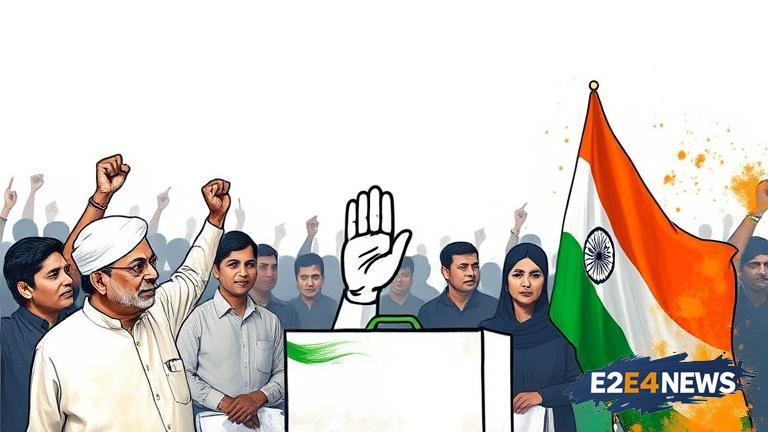The Indian National Congress has been vocal about its concerns regarding the integrity of the electoral process in the country. The party has alleged that there has been a significant amount of vote theft in recent elections, which has affected the outcome of the results. However, a closer look at the numbers reveals a different story. The data suggests that the ruling party has performed well in the elections, and the opposition’s claims of vote theft may be unfounded. The Congress party has been crying foul over the alleged manipulation of electronic voting machines (EVMs) and the use of money power to influence voters. The party has also accused the ruling party of using its muscle power to intimidate opposition candidates and voters. Despite these allegations, the numbers paint a rosy picture for the ruling party. The data shows that the ruling party has won a significant number of seats, and its vote share has increased substantially. The opposition parties, on the other hand, have failed to make a significant impact. The Congress party’s allegations of vote theft have sparked a heated debate in the country, with many questioning the integrity of the electoral process. The Election Commission of India (ECI) has maintained that the elections were free and fair, and that the EVMs used in the polls were tamper-proof. However, the opposition parties have demanded a thorough investigation into the allegations of vote theft. The issue has also sparked a war of words between the ruling party and the opposition, with each side accusing the other of trying to undermine the democratic process. The Congress party has also alleged that the ruling party has used its majority in the parliament to pass laws that favor its own interests. The party has also accused the ruling party of trying to suppress the opposition’s voice and stifle dissent. The allegations of vote theft have also raised questions about the role of money power in Indian politics. The use of money power to influence voters is a common phenomenon in Indian elections, and the opposition parties have accused the ruling party of using its financial muscle to buy votes. The issue has also sparked a debate about the need for electoral reforms in the country. Many have argued that the current electoral system is flawed and that there is a need for a more transparent and accountable system. The Congress party’s allegations of vote theft have also highlighted the need for a more robust and independent electoral commission. The ECI has been accused of being biased towards the ruling party, and the opposition parties have demanded that the commission be made more independent and autonomous. The issue has also sparked a debate about the role of the media in Indian elections. The media has been accused of being biased towards the ruling party, and the opposition parties have alleged that the media has failed to provide fair and balanced coverage of the elections. The allegations of vote theft have also raised questions about the future of Indian democracy. Many have argued that the allegations of vote theft are a threat to the very foundations of Indian democracy, and that there is a need for a more robust and transparent electoral system. The Congress party’s allegations of vote theft have also sparked a debate about the need for a more inclusive and representative electoral system. The party has argued that the current system is flawed and that there is a need for a more proportional representation system. The issue has also highlighted the need for a more robust and independent judiciary. The judiciary has been accused of being slow to respond to the allegations of vote theft, and the opposition parties have demanded that the judiciary be made more independent and autonomous.
